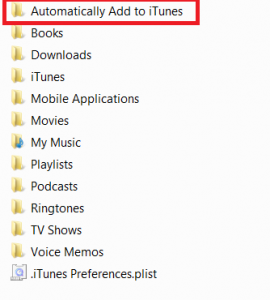I am ripping my CD collection to NAS. Two formats at once, AIFF (home listening) and MP3 for iTunes/iPod use. Sending the AIFF and MP3 files to separate folders on NAS. Need help here. A couple questions.
1. Is there a way to have the MP3 folder files automatically ADD to iTunes? XL Encoder will do this for you.
2. I have ripped a few CDs to test and when looking at the files I noticed the first ripped CD was placed in an individual FOLDER. Example "REM" then "Out of Time" with the audio file inside. After this first rip no other individual "Artist" "Album" folders have been created and the audio files from 4-5 CDs are all in one in one folder not organized by Artist then Album. QUESTION - Does this matter in the long run that the files are not organized within folders?? Thanks for the help.
1. Is there a way to have the MP3 folder files automatically ADD to iTunes? XL Encoder will do this for you.
2. I have ripped a few CDs to test and when looking at the files I noticed the first ripped CD was placed in an individual FOLDER. Example "REM" then "Out of Time" with the audio file inside. After this first rip no other individual "Artist" "Album" folders have been created and the audio files from 4-5 CDs are all in one in one folder not organized by Artist then Album. QUESTION - Does this matter in the long run that the files are not organized within folders?? Thanks for the help.



 ) Think of it like this: A lossless rip grabs all the audio data of the original CD....all the bits, as it were. Then all those bits have to be stored in some kind of container, and there are lots of different containers (codecs) available. Player support means a that player knows how to open that particular container, take out the bits, and feed them into a DAC (digital-to-audio converter). For any lossless format, that bit stream is identical when it arrives at the DAC....the container they were in before that is irrelevant. That's the audio side of it.
) Think of it like this: A lossless rip grabs all the audio data of the original CD....all the bits, as it were. Then all those bits have to be stored in some kind of container, and there are lots of different containers (codecs) available. Player support means a that player knows how to open that particular container, take out the bits, and feed them into a DAC (digital-to-audio converter). For any lossless format, that bit stream is identical when it arrives at the DAC....the container they were in before that is irrelevant. That's the audio side of it.
Comment